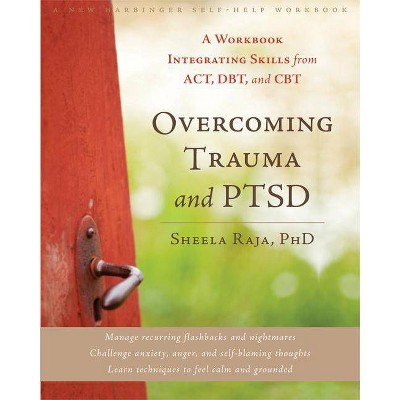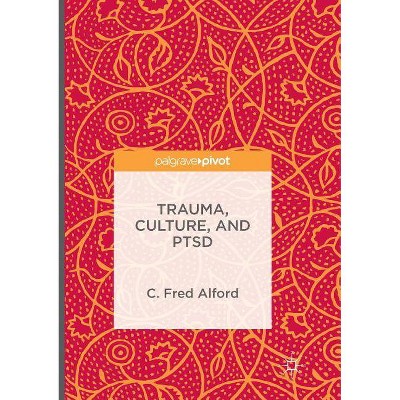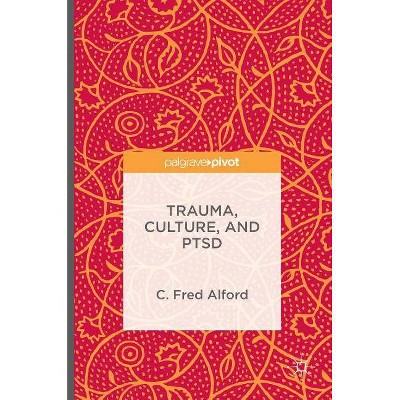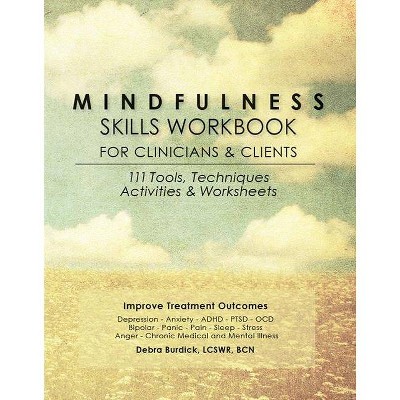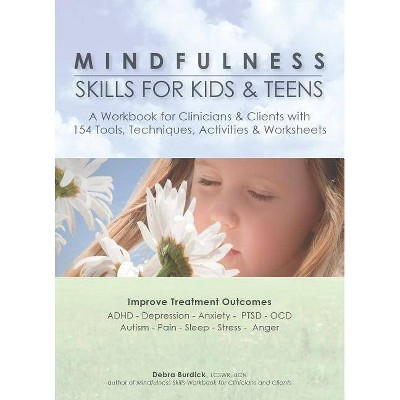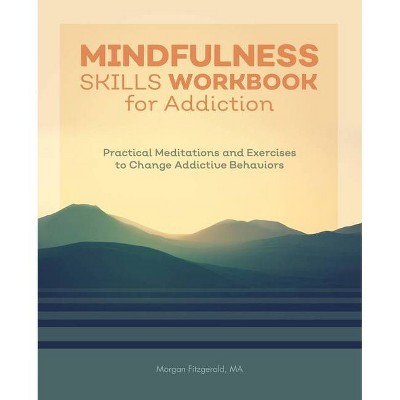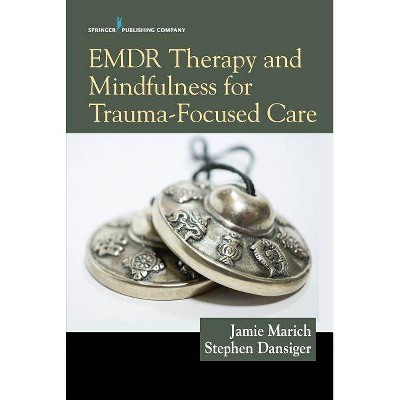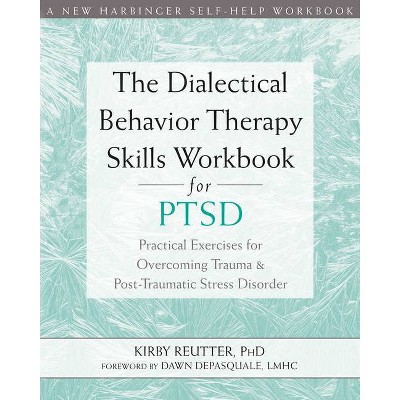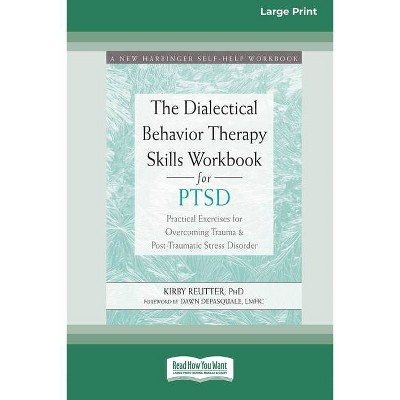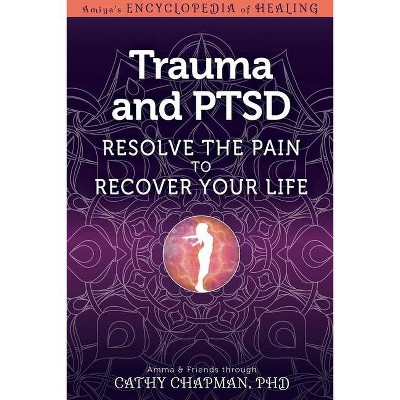Mindfulness Skills for Trauma and Ptsd - by Rachel Goldsmith Turow (Paperback)
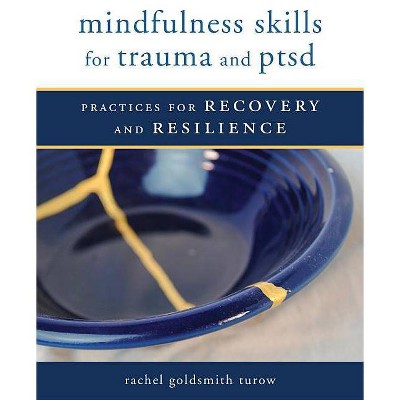
Similar Products
Products of same category from the store
AllProduct info
<p/><br></br><p><b> About the Book </b></p></br></br>How mindfulness can help trauma survivors move to places of healing.<p/><br></br><p><b> Book Synopsis </b></p></br></br><p>Trauma touches every life, but the way that we hold our pain makes a difference. <em>Mindfulness Skills for Trauma and PTSD</em> provides user-friendly descriptions of the many facets of traumatic stress alongside evidence-based strategies to manage trauma symptoms and build new strengths. This book is a valuable resource for trauma survivors, health professionals, researchers, mindfulness practitioners, and others seeking new pathways to recovery and resilience.<br /><br /> It is normal to feel anxious or depressed after trauma, and to have upsetting thoughts and memories. Instead of fighting our feelings and blaming ourselves for what are actually common responses to trauma, mindfulness practices can help us tolerate and decrease distress, cultivate kindness towards ourselves and others, make wise choices, navigate attention, improve relationships, and relax--capacities that reduce trauma symptoms and advance our overall well-being.</p><p>Practicing the small stuff can help us with the big stuff. As we learn to notice our breathing, walking, minor frustrations or daily activities with curiosity and care, we build inner resources to skillfully handle past trauma, as well as current and future challenges. Mindfulness practices can transform self-blame into self-respect and self-compassion. We can also match specific mindfulness skills to particular trauma symptoms. For example, "grounding" with the five senses can help us when we feel overwhelmed or spaced out, and loving-kindness meditation can alleviate self-criticism.<br /><br /> With this book, you will explore scientifically supported mindfulness practices, plus "In their own words" sections that illustrate the skills with personal stories demonstrating how mindfulness practices have helped others recover from trauma. "Research highlight" sections showcase fascinating scientific studies that form the basis for the book's approaches. As we practice effective strategies to handle a full range of experiences, we can each find new sources of hope, connection, and peace.</p><p/><br></br><p><b> Review Quotes </b></p></br></br><br>Built for survivors, friends and family, teachers, students and practitioners. . . [F]ull of resources to combat daily challenges faced by survivors of trauma and PTSD.-- "Somatic Psychotherapy Today"<br><br>Dr. Turow combines a deep understanding of mindfulness practice with extensive knowledge of what the research literature has taught us about the consequences of trauma. The result is a beautiful synthesis, which gently and intelligently teaches the reader how practices that cultivate mindfulness, kindness, and compassion can help us to heal from trauma. The book is likely to benefit not only individuals who have sustained trauma, but also mindfulness teachers and therapists.--David J. Kearney, MD, Physician, VA Puget Sound Health Care System, Professor of Medicine, University of Washington School of Medicine<br><br>This volume is packed with treasures; the author describes literally dozens of practices that those who are dealing with trauma can beneficially put to use, and which are amply illustrated by research data and by personal accounts. The mind can be our worst enemy but also our dearest friend; it can be the cause of crippling disease but, ironically, the means of healing it too. Through her insightful analogy of the 'golden mend' (kintsukuroi) Turow highlights how the places where we have been most severely broken can become both the strongest and most beautiful aspects of our being. This book reminds us that things create their opposites, and that is a message of hope for us all.--Ajahn Amaro, Buddhist monk and teacher<br><br>What a valuable and accessible resource this book offers, not only to clinicians working with trauma survivors, but to trauma survivors themselves. It makes the sometimes challenging world of mindfulness understandable, and demonstrates the very practical applications of this ancient healing art to the real and pressing problems of traumatized individuals. It's one I'll be sharing with the people I train and the people I treat.--Laura S. Brown, PhD, ABPP, Independent practice, Seattle WA, Past President, APA Division of Trauma Psychology<br>
Price History
Cheapest price in the interval: 22.99 on October 28, 2021
Most expensive price in the interval: 22.99 on November 6, 2021
Price Archive shows prices from various stores, lets you see history and find the cheapest. There is no actual sale on the website. For all support, inquiry and suggestion messages communication@pricearchive.us
